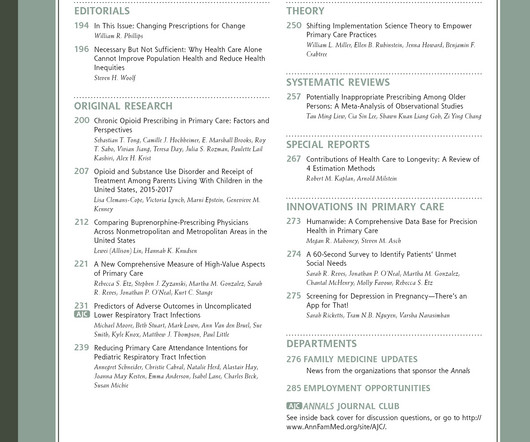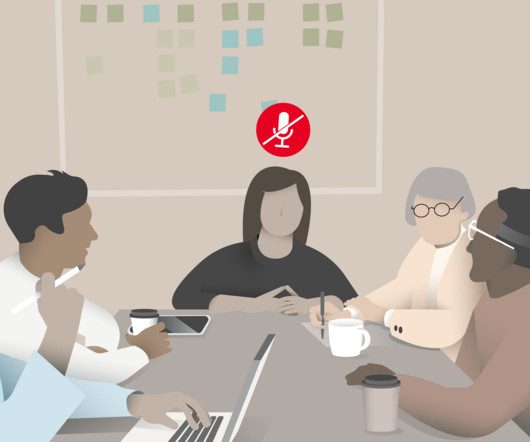Lessons, Message, and Recommendations from Latina Survivor of Cervical Cancer for Healthcare Teams and Providers [Health care disparities]
Annals of Family Medicine
NOVEMBER 20, 2024
Dataset: We conducted a qualitative study utilizing the Database of Individual Patient Experiences (DIPEx) methodology - a time-tested, research-based approach for conducting and disseminating health and healthcare experiences.












Let's personalize your content